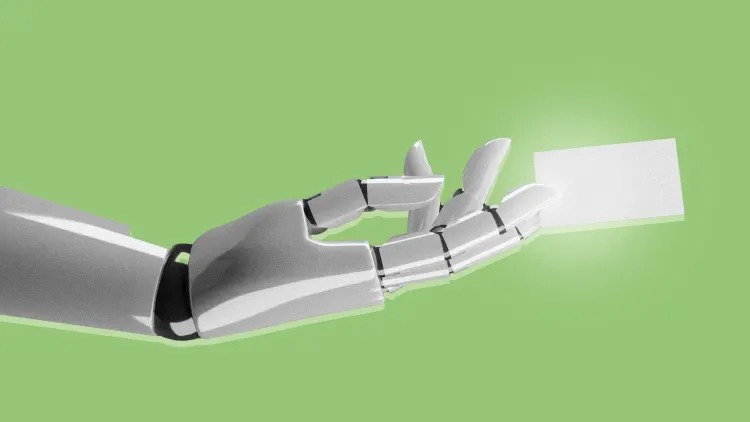- | 9:00 am
How to tell if you’re going to lose your job to AI, according to a computational neuroscientist
Will you lose your job to AI? A computational neuroscientist looks back to the industrial revolution for answers.

Public interest has exploded since OpenAI released ChatGPT in November 2022. Within two months, it had a record 100 million users, far outpacing the debuts of Google and Facebook. Responses have ranged from fascination at the fast and lucid text it generates to anxiety about its impact on jobs and the future. Almost every day, there are news articles about unexpected uses for ChatGPT, from helping doctors empathize with patients to a $3 trillion-dollar market capitalization for Nvidia, which makes graphics processing units (GPUs) used to train deep learning networks.
After giving a talk, I am often asked: will I lose my job to AI? The press has sounded the alarm bell, and people—many—are concerned. We can get insights into why and what to expect by looking at the impact of another period of global transition that occurred 250 years ago—the Industrial Revolution.
The Industrial Revolution had a marked impact on everyone who lived through it. The invention of the steam engine, for one, greatly enhanced human physical power: it allowed a single farmer to plow a hundred times more land than a horse-powered plow. Consequently, fewer farmers were needed to produce enough food for a growing population. When President Abraham Lincoln signed legislation establishing the U.S. Department of Agriculture in 1862, 90% of Americans were farmers. In 1900, 40 percent of the US population lived on farms; today, only about 1% live on farms.
Throughout the nineteenth century, as fewer farmers were needed, the children of the farmers moved from farms to the cities to work in new industries. New jobs were created, and education was greatly expanded to train the workforce how to operate the machines. This transformation occurred gradually, but solidly, for over 100 years—long enough for succeeding generations to adapt to the new jobs.
Following the Industrial Revolution, jobs that involved physical labor, such as agriculture and construction, were transformed, but not jobs that involved mental work, such as doctors, lawyers, and teachers. But even within categories of employment, such as manual labor in the transportation industry, what shifted was job skills. When automobiles replaced horses, the number of blacksmiths in the United States fell from 15,000 in 1860 to 1,000 today as the population increased tenfold. Today, 600,000 automobile mechanics work in the United States.
Large language models (a type of artificial intelligence program that can recognize and generate text, among other tasks) are the most recent phase in an information revolution, which started with computers in the mid-twentieth century and continued when the internet took off in the 1990s. The information revolution has affected every aspect of our lives and continues to evolve. During the last fifty years, many have predicted that automation would eliminate jobs with disruptive consequences. Why haven’t these dire predictions come true? Work at existing jobs shifted, and new work opened up.
The information age created many new jobs. Web developers and designers, digital markets, data scientists, cybersecurity analysts, and the like were all created by the introduction of the Internet. If the impact of LLMs on jobs follows in the footsteps of the internet, we can expect a cornucopia of new job opportunities related to your existing job—new jobs that are more mindful and satisfying, since LLM’s can begin to take care of the routine parts. As this work becomes automated, the proverbial horizons expand. There will be many choices. In short, you will not lose your job, but your job will change.
LLMs are still under development, but they have the potential to revolutionize the way professionals work. By automating tasks and providing access to information, LLMs can help professionals to be more productive and to focus on more creative and strategic work.
LLMs can help professionals in many different industries improve their performance. In a study that was reported in Science magazine, college-educated professionals completed incentivized writing tasks in a randomized control trial. ChatGPT participants were more productive and efficient and enjoyed their tasks more. Participants with weaker skills benefited the most from ChatGPT. Their results confirm the informal experience of many others who now routinely use ChatGPT in their work. They used a randomized control trial, in which the experimental and control groups have matched demographic backgrounds because it is the best way to avoid biases from confounding variables and to arrive at causal explanations.
Many who have used LLMs to help them with their daily work in many professions would agree—law, medicine, journalism, advertising, and many others, including science and engineering. Some are worried that they will lose their jobs because of AI. But for many, AI is speeding up repetitive work, freeing time for more engaging tasks, and creating new jobs. Remarkably, AI is indeed making us smarter.
The Industrial Revolution amplified human physical power; the Information Revolution significantly enhances human cognitive power. It is unfolding much faster than the Industrial Revolution, over decades rather than centuries, which means that changes that took generations to spread through society in the Industrial Revolution will take place during your lifetime. The future is unfolding before our eyes.
Excerpted with permission from ChatGPT and the Future of AI: The Deep Language Revolution (MIT Press) by Terrence J. Sejnowski.







































